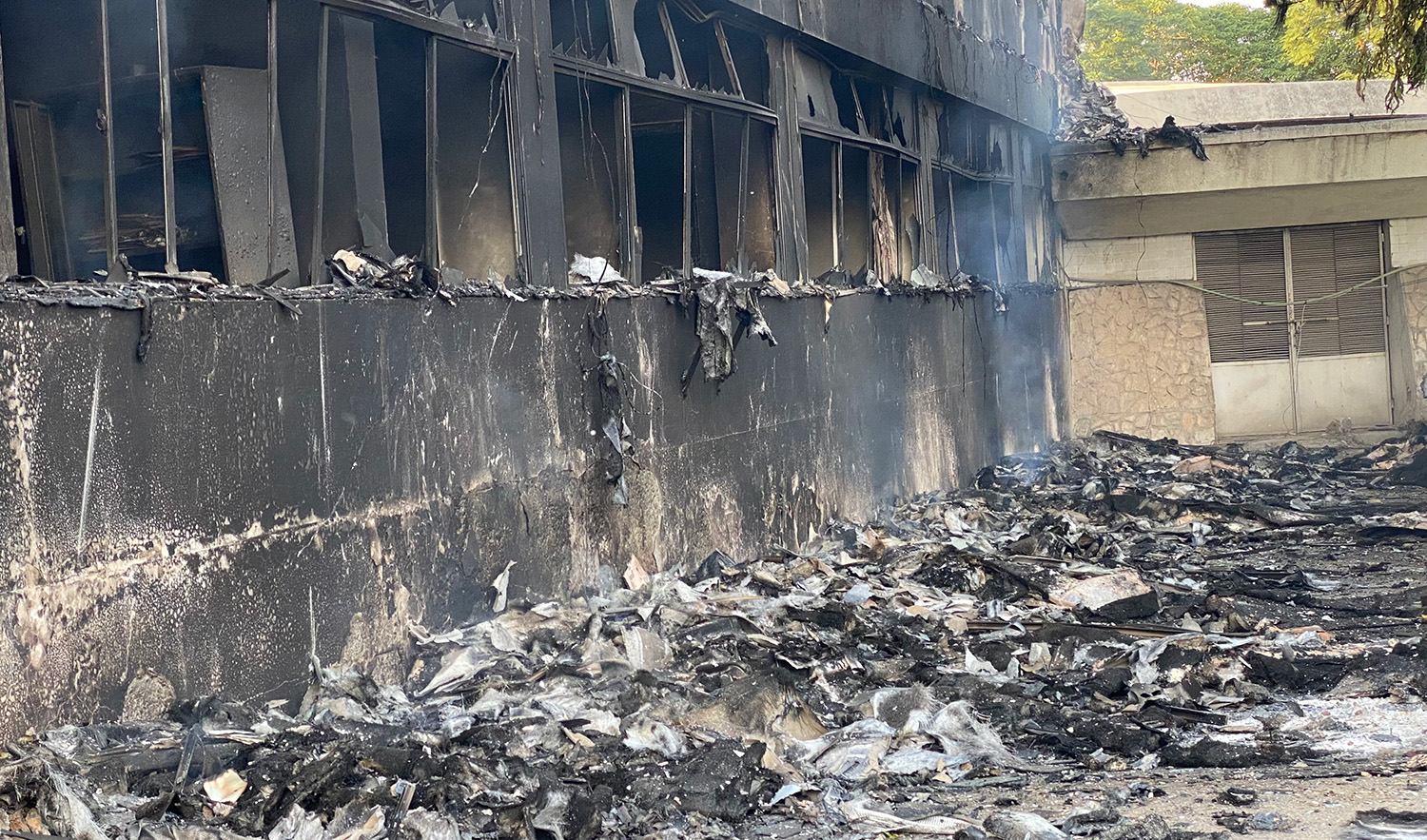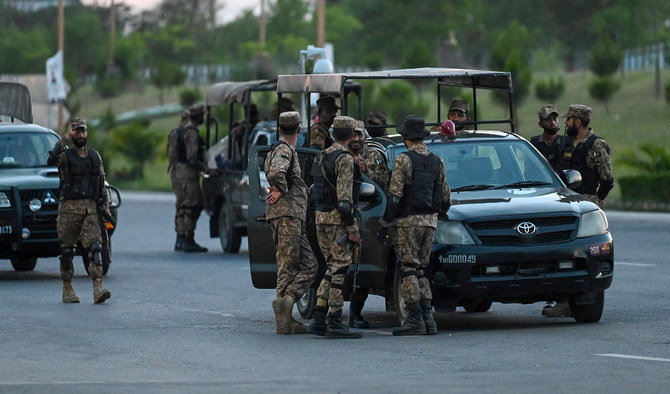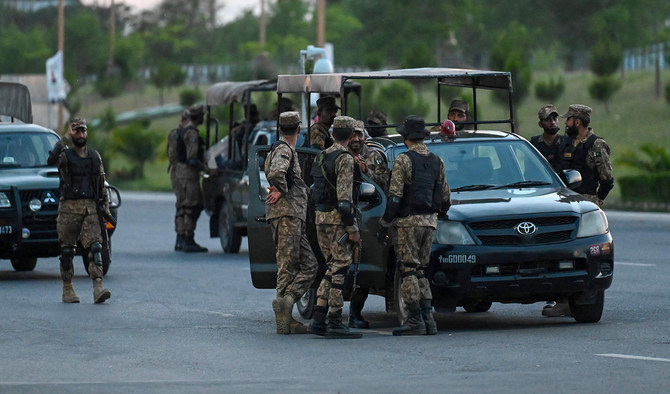PESHAWAR/LAHORE: Following two days of clashes between security forces and supporters of former Prime Minister Imran Khan, some normalcy returned on Thursday to the cities of Peshawar and Lahore, the sites of some of the deadliest clashes between police and supporters since the popular opposition politician was arrested in a graft case.
Thousands of people have been arrested and at least six killed since Tuesday when the protests against Khan’s arrest began. His supporters clashed with police, attacked military properties and set other state buildings and assets ablaze, prompting the government to call in the army to help restore order in Islamabad, the federal capital, as well as the Punjab and Khyber Pakhtunkhwa provinces, whose capitals are Lahore and Peshawar respectively.
The unrest was countrywide but took an especially violent turn in Lahore and Peshawar.
In Lahore, in Pakistan’s most politically important and populous Punjab province, about 4,000 of Khan’s supporters stormed the official residence of the top regional military commander on Tuesday evening, smashing windows and doors, damaging furniture and staging a sit-in as troops there retreated to avoid violence.
The protesters also burned police vehicles, damaged government buildings and blocked key roads.
Protesters also smashed the main gate of the army’s headquarters in the garrison city of Rawalpindi, which neighbors Islamabad, as the army exercised restraint. Video footage widely circulated on social media showed hundreds of demonstrators shouting pro-Khan slogans as they moved toward the sprawling building.

The ground floor of Radio Pakistan and Associated Press Pakistan premises in Peshawar on 10 May 2023. (AN photo)
In Peshawar, the buildings of the state-run Radio Pakistan and the Election Commission of Pakistan (ECP) were ransacked and a paramilitary Frontier Corps school was set on fire.
Around 17 government and four private vehicles were set ablaze and 14 government and three private buildings were damaged, the KP home department said, adding that almost 350 people had been arrested in connection to the violence.
“Five people have died so far and 141 are injured,” a hospital official at the Lady Reading Hospital, Peshawar's largest medical facility, told Arab News.
On Thursday afternoon, the army and the police carried out a flag march from Peshawar city’s Deans Chowk to Stadium Chowk in Cantt, to mark the presence of security forces in the city.
"I saw army personnel along with police marching on Saddar Road,” an eyewitness who identified himself as Sirajuddin told Arab News.
Speaking to reporters after visiting injured policemen at the Services Hospital, KP Caretaker Chief Minister Azam Khan said:
"The army has been called in to assist the police and civil administration."
In a strongly–worded statement released on Wednesday evening, the army said it would take action against “facilitators, planners and political activists” behind organized attacks on army properties and installations in the aftermath of Khan’s arrest.
Prime Minister Shehbaz Sharif, who leads the coalition government in the center, also vowed punishment "as per the law and constitution" for violent protesters.
Section 144, an emergency order banning all gatherings, has also been imposed in Punjab and Khyber Pakhtunkhwa after Khan's supporters clashed with police.
But by Thursday late afternoon, life in Peshawar seemed to be returning to normal as major roads were reopened for traffic and barriers were being removed after nearly three days of government buildings being cordoned off. Only one thoroughfare, the Khyber Road which leads towards the Red Zone that houses sensitive government and military buildings, remained closed.
In Punjab, the police said it has made 2,217 arrests across the province in the last three days, as 150 police officers were injured and 72 assorted vehicles set on fire during protests.
On Tuesday, crowds gathered in the Zaman Park neighborhood where Khan’s residence in Lahore is located, as well as Liberty Chowk, from where they went on into the Cantonment area across Cavalry Bridge, invading the military Corps Commander house, ransacking it and setting it on fire.
On-again-off-again clashes continued between Khan supporters and police till late on Wednesday night when the police tried cordoning off protestors at Liberty Chowk by sealing the entrances and exits to Main Boulevard and making mass arrests. The trucks were torched by Thursday morning.
“The Rangers have no business arresting Imran Khan, the army has no business involving itself in political arrests,” one Khan supporter who did not wish to be named told Arab News, saying he was among those who had gone into the Corps Commander's house.
On Thursday, Rangers and army officials could be seen patrolling Lahore’s roads, though many of the blockades had been removed from the streets and the Kalma Chowk underpass, leading to one of the major commercial areas of the city, had been reopened.
But many PTI supporters remained camped out at Zaman Park.
“The shell hit me straight in the face [on Tuesday],” Khan supporter Zohaib Ahmed told Arab News outside Khan’s home on Thursday, “and I couldn’t get to a hospital since the exits were blocked [at the time].”
















